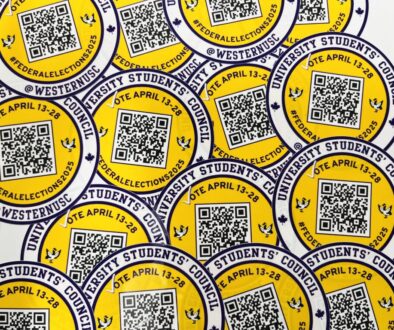The Power of Student Voices: VP External Affairs, Eunice Oladejo, on OSAP Clawbacks, Bringing Buses Back and How Advocacy Works
By actively engaging in advocacy initiatives and with the help of student voices, the University Student Councils’ Vice President External Affairs and Ontario Undergraduate Student Alliance’s President, Eunice Oladejo, ran a campaign to advocate for stop OSAP Clawbacks from the provincial government and successfully brought LTC buses back to campus.
Ontario Student Assistance Program (OSAP) allows students to experience a financially affordable education through allocating funding from the Canadian federal and provincial governments.
Due to the emergence of COVID-19, the Canadian federal government announced that they would be increasing their investment into OSAP through the doubling of the Canada Student Grants. Through an increase in funding from the federal government and maintaining original funding levels from the provincial government, Ontario students were on track to receive more OSAP funding.
However, the provincial government clawed back their OSAP contributions, leaving students with no increase in overall OSAP funding. The federal government contributed more, and the provincial government issued a decrease in their funding levels.
“The Canadian federal government doubled their spending for Canada Student Grants, and as a result, the provincial government used that doubling to reduce their funding for OSAP, so that was a $400 million reduction in their spending,” explained Oladejo.
The Ontario Undergraduate Student Alliance (OUSA), speaking on behalf of student voices, mobilized advocacy initiatives to address the cutback in provincial spending for OSAP.
“Around July, [OUSA’s] board met and I brought the idea of running a campaign around OSAP Clawbacks so students are aware of what’s going on and are able to contribute to our advocacy and also have a say in our communication with the provincial government. That’s when we decided to have an OSAP Clawback campaign for the fall and be able to call on the government to stop the OSAP Clawbacks and invest any savings into direct support for students,” said Oladejo.
Oladejo and her team at OUSA remained in communication with the Minister of Colleges and Universities and monitored the assessment of provincial spending.
Through active communication with provincial ministers and running the successful “Stop OSAP Clawbacks” campaign, the projected spending from the provincial government is expected to return to the 2019-2020 spending levels without the $400 million clawbacks.
The campaign allowed students to remain informed regarding the OSAP funding. “It was a success in terms of letting students know what was going on and allowing them to participate in advocacy, share their stories, reach out to their members of Parliament, and hopefully seeing the confirmed return to previous spending levels,” explained Oladejo.
Oladejo and her team are looking to monitor the actions of Queens Park and analyze the spending when it comes out in order to hold the provincial government accountable for their funding promises. “If not, it’s back to our advocacy and bugging their ears every day,” said Oladejo.
Financial aid for undergraduate students continues to be underfunded. “There’s a lot of aspects as to what makes post-secondary education accessible—for example, mental health services. But, I think universities and the governments need to listen to student voices to know where that need falls. I see more students struggling with financial aid and graduating in debt. A lot more can be done in terms of tuition regulation for international students or increasing student financial aid,” said Oladejo.
Prior to the Winter Break, the LTC introduced service cuts to bus routes, many of which remain important for the transportation of Western students. USC’s External Affairs team has remained in direct contact with the LTC and was actively advocating for student needs. Fortunately, the 90 and 91 will now be returning to their weekend services, and the 102 and 106 will be returning to weekday services.
Eunice explains the importance of never giving up when it comes to advocacy. “A lot of advocacy is staying involved with conversations that maybe people don’t want you involved in. Students [reached out and showed us] and LTC how important it was for the student body to get these buses back, and I see this as a joint effort with the student body too because I know a lot of students sent emails to LTC and cc’d me on it. [Being] able to apply that pressure shows how advocating for something you really believe in can really have an impact,” said Oladejo.
Eunice stresses the importance of student advocacy and the power of students’ voices in the realm of government.
“People might assume that youth are not interested, but what we’ve seen in student government is that we have a voice to lend on issues. It’s important to have student advocates because somebody who’s not in the post-secondary sector might not see how an issue relates to the students. But we are at that table and given the opportunity to represent our student needs,” said Oladejo.
Eunice encourages students to partake in advocacy initiatives in their student community. “I am always available to talk; our emails are on the website. If you don’t know where to start, just reach out, ask how you can get involved, apply for opportunities.”
Oladejo recently met with multiple MPs and policy advisors during Canada-wide Lobby Week and advocated for international student employment opportunities, support for mental health and students with disabilities, student financial aid, and much more.
Through collective efforts of the student body and the External Affairs team, student voices are mobilized and bring effective change that directly impacts the lives of post-secondary students at Western University.
To stay up to date with student initiatives and issues impacting students-at-large, follow USC and OUSA on Instagram. The USC executive road map also helps students track policy initiatives and stay informed.





